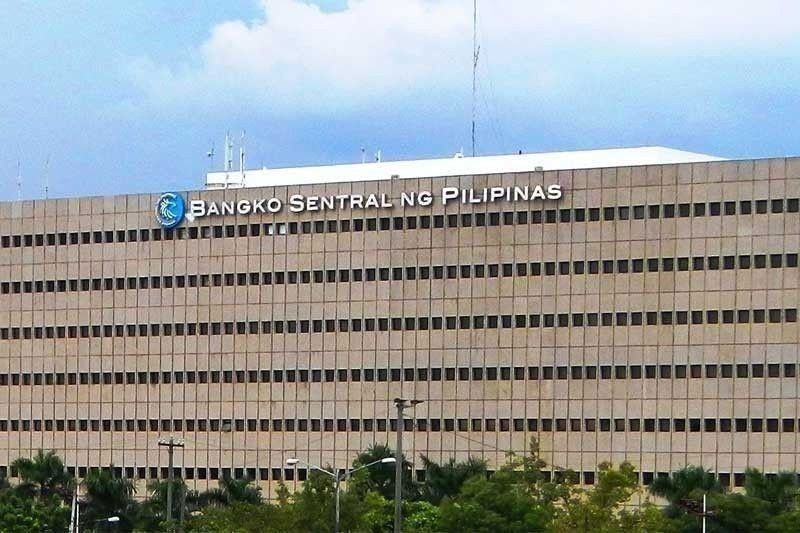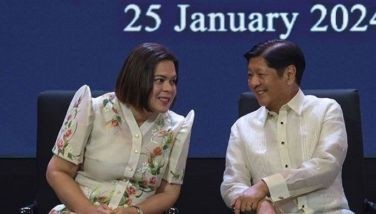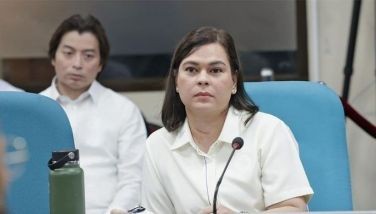Over half of Pinoy adults now with bank accounts

MANILA, Philippines — The proportion of Filipino adults with bank accounts soared to 53 percent in the first quarter from 29 percent in 2019, as the Bangko Sentral ng Pilipinas (BSP) ramps up its financial inclusion efforts.
BSP Governor Benjamin Diokno said in an HSBC virtual forum that the central bank is confident of achieving the 70 percent target by 2023 under its Digital Payments Transformation Roadmap.
“As of the first quarter of 2021, the proportion of banked Filipino adults has reached 53 percent, nearing the target of 70 percent. These include basic deposit and e-money accounts,” Diokno said.
Latest data from the central bank showed the number of basic deposit accounts reached seven million with P4.8 billion deposits in the first quarter of the year, while registered electronic money accounts reached 138.8 million with a total number of transactions of 1.7 billion last year.
The BSP continues to intensify its financial inclusion efforts as it aims to transform the Philippines into a cash-light from a cash-heavy economy. This has resulted in a sustained increase in the number of Filipino adults with bank accounts from 23 percent in 2017, 29 percent in 2019, and to 53 percent as of the first quarter of the year.
Aside from raising the number of Filipino adults with bank accounts, the central bank also aims to convert 50 percent of total retail transactions in the country to digital channels by 2023 under the roadmap.
“We are confident of hitting the twin goals,” Diokno said.
With the pandemic serving as catalyst, the BSP chief said the share of digital payments to total financial transactions in terms of volume reached 20.1 percent in 2020 from 14 percent in 2019.
This exceeded the 20 percent in 2020 from one percent in 2013 target under the National Retail Payment System (NRPS) launched in December 2015.
“Last year’s target of 20 percent seemed unrealistic for many, but we were able to achieve it with active promotion. The mobility restrictions caused by the pandemic contributed to the wider adoption of digital payments,” Diokno said.
According to Diokno, technology speeds up financial transactions, thereby hastening capital recovery and income generation. It allows the underserved sectors, including low-income earners and people from remote areas, to easily access affordable financial products and services as well as credit for livelihood activities.
“As more Filipinos embrace the convenience of digital payments, we expect the phenomenal growth in digital financial transactions to continue in the years ahead,” he said.
As part of its financial digitalization drive, the BSP is working with the Department of Labor and Employment to promote digitalization of wage payments as well as the Department of Transportation to expand the use of digital platforms to pay for transport fares.
The regulator also supports the Philippine Identification System to allow unbanked Filipinos to finally open financial accounts, accelerating financial inclusion.
The BSP earlier signed an enhanced FinTech Cooperation Agreement with the Monetary Authority of Singapore to facilitate interoperable payments between the two countries.
It is also studying the Bank for International Settlement (BIS) Innovation Hub’s Project Nexus - a model for connecting multiple instant payment systems into a single cross-border platform.
The BSP is supporting legislative reforms including the Financial Consumer Protection bill to strengthen its ability to address consumer concerns on electronic financial accounts and enhance consumer safety and trust on the digital financial system.
Diokno also believes the digital banks that were awarded licenses would bring banking in the Philippines to new heights.
The BSP Monetary Board has granted digital banking licenses to Overseas Filipino (OF) Bank of state-run Land Bank of the Philippines, Tonik Digital Bank, UNObank, Union Digital Bank of Aboitiz-led Union Bank of the Philippines, GOtyme – a joint venture between the Gokongwei Group and Singapore-based digital bank Tyme, and Maya Bank of PLDT’s Voyager Innovations and PayMaya Philippines.
- Latest
- Trending





























